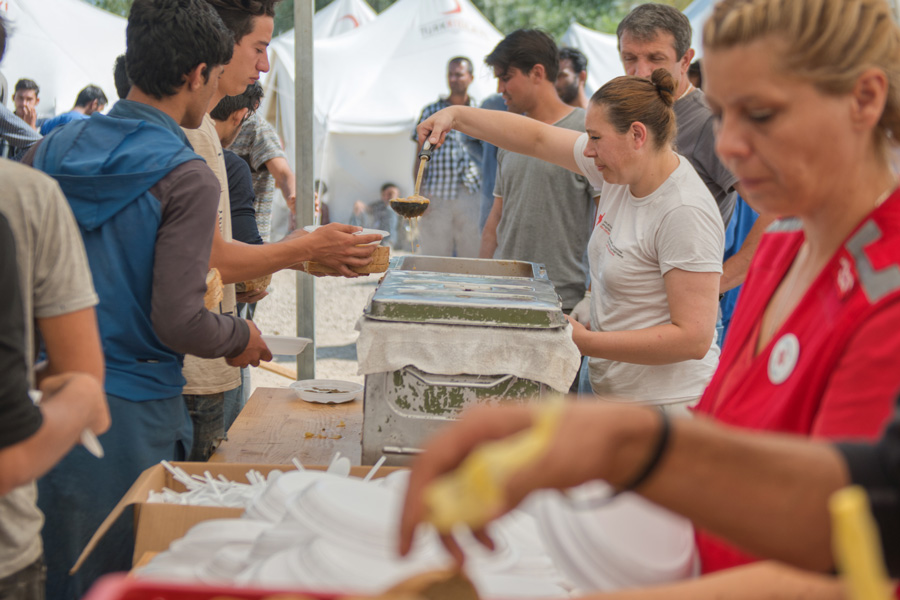The Rencontres de la Fondation made their comeback in 2022, in “face-to-face” format, after a two-year break due to the Covid crisis, during which exchanges continued via computer screens. “These years, due to the confinements and social distancing, have led society to change its view of the question of the social link,” as Françoise Fromageau, Vice-President of the Foundation, noted in her conclusion.
During this time, everyone has become aware of the need for social ties. But what are social ties? To introduce the day, Francis Akindes, Professor of Sociology at the University of Alassane Ouattara (Côte d’Ivoire) and Vice-President of the Scientific Council of the Foundation, and Marc-Henry Soulet, Professor of Sociology at the University of Fribourg (Switzerland), addressed the audience to give a definition of this vast and complex notion. A notion that embraces everything that binds individuals together and allows them to live together to build a social fabric.
Naturally, when the Foundation questions the notion of social ties, it is to refer to those who are deprived of them, those who are “left out”, the invisible, the “undesirable”, the excluded… The first round table, “Humanitarian action and the challenge of maintaining social ties”, highlighted numerous situations of vulnerability in which maintaining social ties is a challenge and a necessity: from “EHPAD outside the walls” experiments to the Togolese Red Cross mothers’ clubs, via the “Red Cross at your place” scheme…

One thing is certain: working on social ties is not just about fighting isolation. It is not enough to simply ” reach out to others” to create a link. It is the whole point of the research carried out to reflect on the conditions that really enable us to act on the social link. For the social link must above all be a relationship that allows one to escape from confinement in all its dimensions. Whether it is the result of a relationship with a neighbor or with an institution such as the Red Cross, the social link implies availability, listening, benevolence… But it also questions many other notions such as recognition or autonomy. It is a challenge for the caregiving relationship, but also for society as a whole. We talk about integration into society, but we must not forget society’s efforts to integrate,” says François-Xavier Schweyer, Sociologist and Professor at EHESP[1]. This also implies advocacy work and the visibility necessary for a shared awareness.
Excluded among the excluded, migrants were the subject of the second round table ” Social ties in the face of the migratory experience “. How to avoid breaking the existing links threatened by uprooting and distance? How to create new ones, that is to say, to find one’s place, to integrate? The social bond is present, in the background, in all the reflections on the policies of reception and integration. But under what conditions does the caregiving relationship have a positive effect on social ties? Social and humanitarian action involves an element of asymmetry and ambiguity, which sometimes leads to paradoxical effects that need to be analyzed. Florence Ihaddadène, a Lecturer at the University of Picardie (France), provides an example of this by evoking the mechanisms which, while relying on voluntary work with the aim of encouraging the integration of young migrants, run the risk of assigning them to certain missions, confirming stereotypes and thus sidelining them.

The third round table, “Volunteering as a vector of social cohesion”, discussed volunteerism and commitment. Do we get involved for ourselves, for others, to build community? Whatever the very different forms that this commitment may take depending on the person and geographical areas, it is the place of the volunteers’ self-representation in their commitment that is at the heart of the question.
In his conclusion, Michel Agier, Anthropologist and Director of Studies at the EHESS[2], shed new light on this issue: “In this crisis of the link, commitment is in itself a link, it creates a link, it heals the link. Underlining the diversity of the categories of exclusion and the issues addressed during the day, he was keen to recall a characteristic shared by all forms of voluntary or professional commitment, “that of courage, the courage of relationship, the courage of living together in a context where everything encourages withdrawal and indifference.”
[1] École des hautes études en santé publique (School of Advanced Studies in Public Health)
[2] Ecole des hautes études en sciences sociales (School of Advanced Studies in the Social Sciences)
Top photo credit: Frédérique Jouval





